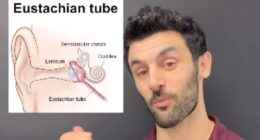I have a loving wife and child, but I feel I don’t want to exist

The question I can’t be bothered to exist any more. I have a solid job, although it’s taken me a long time and a huge amount of effort to prove my worth. I also have an amazing wife, a wonderful child and another one on the way. But I am just existing. The only instance of spontaneity this year has been the whole family contracting Covid. Yes, I realise life is hard, suck it up, buttercup.
I’ve felt like this ever since I was a child. I experienced something you must have heard hundreds of times: dad gone; stepdad abuses whole family; mum becomes zombie; my sister and I feel isolated. I obsess about either disappearing completely (barren landscape, cold, I chop wood, no phone) or something terribly violent (being hit by a car, etc). Another fantasy I’ve had since childhood is suicide, but with financial dependants it’s taken a backseat.
I wish I didn’t exist, that I hadn’t ever existed. My whole life feels tainted and wrong. I’m certain I won’t take my own life now that I have children so I’m stuck. My wife suggests therapy. I feel therapy can only go so far. I doubt therapy could make my life less monotonous and more rewarding. Will it perhaps give me skills to embrace monotony? And accept that I should just carry on existing, with the comfort that one day I won’t?
I realise this all sounds selfish – children first! – but if I feel absolutely nothing, how can I put them first, no matter how much I may want to, it feels like I’m just killing time.
Philippa’s answer Yes, I have unfortunately heard quite a few such stories, and they all touch my heart. When we have been traumatised the rational part of the brain cannot talk the emotional side out of its reality. You can’t “should” yourself into feeling differently than you do, so no more talk of being selfish. You wouldn’t tell someone with a broken leg they need to suck it up any more than you should with someone suffering the after effects of trauma.
You have suicide ideation, so see your GP, and get a referral to a psychiatrist, and sooner rather than later. Your psychiatrist will work with you to decide treatment, which will probably include therapy.
One of the things standing out from your email is this: your mother became a zombie. When life is frightening and difficult to cope with, what the body can do is dissociate. It is as though your mind and body disconnect so that you don’t inhabit your own life. Dissociation is an involuntary form of escapism and people who have it often talk about existing rather than living. It sounds like she might have been dissociative and I wonder if you might be, too. Perhaps it started when your father left. Or when the abusive stepfather entered the scene and your mother was there, yet not able to be present for you and your sister.
READ RELATED: Dangers of Taking Supplements
Cutting off from feelings is a way of surviving abandonment and abuse, it is a bodily reflex. It allows your mind to leave when your body is trapped. Unfortunately, it often continues long after the threat has gone. Until you know what it is, and how to recognise when it is happening, it is hard or impossible to control.
There are different ways the body dissociates and, depending how you are dissociating and, indeed, if you actually are dissociative (no one can diagnose you from an email) your treatment can be tailored accordingly. A course of therapy you may be recommended to try is EMDR, which stands for Eye Movement Desensitisation and Reprocessing. What this can do is reconnect the emotional and rational parts of your brain, helping you to process memories and sensations, so that you can control them, rather than (what sounds as though could be happening) those sensations mastering you. The trouble with dissociation or repression is that you cannot desensitise to just one type of feeling without shutting off all feelings.
Something else that could be happening is that because of the traumatic memories and the sensations they evoke, it is as though the emotional part of your brain is blocked off as it continually works to keep these sensations from the surface. The rational part of you can go to work, earn money, appreciate that your wife and child are loving people and that they care for you, but you’ve nothing left to feel or appreciate that.
Please read or listen to The Body Keeps the Score by Bessel van der Kolk. This traces the history of trauma therapy and describes the treatments often used, including drug, talking and body therapies. It’s a very readable book with personal stories and case studies. From it you will learn how trauma affects the body and the treatments available. It will also enable you to be an active participant in your recovery rather than a passive patient, which I believe to be important.
The effects of trauma in childhood are far better understood now than they used to be and there are effective treatments for it. I am optimistic for you.
In the UK and Ireland, Samaritans can be contacted on 116 123 or email [email protected] or [email protected]
If you have a question, send a brief email to [email protected]
Source: Health & wellbeing | The Guardian







